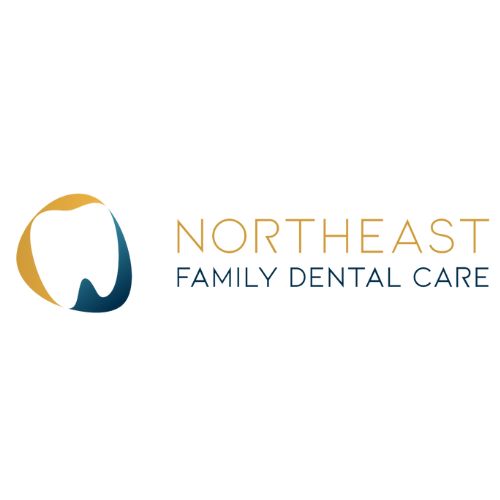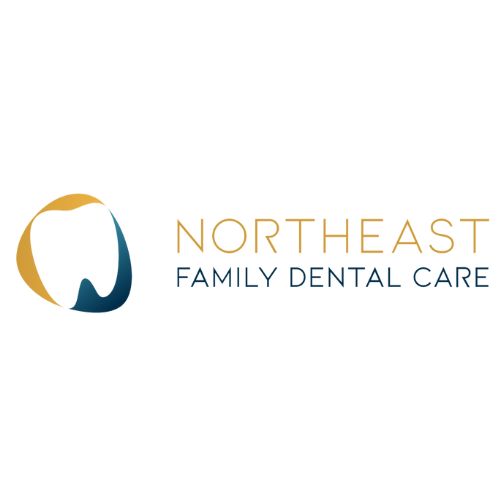Navigating Food Choices During Dental Emergencies: A Comprehensive Guide

Our comprehensive guide on navigating food choices during dental emergencies! Dealing with a dental emergency can be a painful and stressful experience, but one aspect that often gets overlooked is the importance of proper nutrition during this time. What we eat plays a crucial role in our overall health and healing process, so it's essential to make informed food choices that promote recovery while minimizing discomfort. In this blog post,
we'll explore the foods to avoid, safe options for soft foods and liquids, tips for maintaining a balanced diet, meal preparation strategies for oral pain or discomfort, as well as how to manage any food sensitivities or restrictions you may have. So let's dive in and discover how prioritizing nutrition can help you heal faster and get back to smiling confidently again!
The Importance of Proper Nutrition During Dental Emergencies
Proper nutrition plays a crucial role in our overall health and well-being, and this holds true even during dental emergencies. When we experience oral pain or discomfort, it can be challenging to maintain a balanced diet. However, making mindful food choices is essential for optimal healing and recovery.
During a dental emergency, our bodies require adequate nutrients to support the healing process. Nutrients such as protein, vitamins A and C, calcium, and iron are particularly important for promoting tissue repair and strengthening the immune system.
Furthermore, certain foods can aggravate dental issues or cause further discomfort. It's best to avoid hard or crunchy foods that may put pressure on sensitive areas or potentially damage any temporary restorations. Additionally, acidic foods and drinks should be limited as they can erode tooth enamel.
Choosing soft foods that are easy to chew and swallow can provide nourishment without exacerbating oral pain. Options like mashed potatoes, soups (without chunks), smoothies made with nutritious ingredients like fruits or vegetables are excellent alternatives during this time.
Maintaining a balanced diet while recovering from a dental emergency doesn't have to be complicated. Incorporating nutrient-dense options such as lean proteins (chicken breast or fish), whole grains (quinoa or brown rice), plenty of fruits and vegetables not only supports healing but also boosts your overall well-being.
When dealing with oral pain or discomfort after a dental emergency procedure, meal preparation strategies become vital in ensuring you're getting the necessary nutrients while minimizing discomfort. Consider cooking meals that are softer in texture by steaming vegetables until tender or opting for pureed dishes that still pack nutritional value.
If you have specific food sensitivities or dietary restrictions due to allergies or medical conditions like diabetes, it's crucial to navigate them carefully during a dental emergency period. Consult with your dentist about suitable alternatives so you don't compromise on essential nutrients while adhering to your dietary needs.
Prioritizing proper nutrition during dental emergencies is key to a faster and smoother recovery. By making informed food choices, avoiding
Foods to Avoid During Dental Emergencies
During a dental emergency, it's important to be mindful of the foods you consume to promote healing and avoid further discomfort. Certain foods can exacerbate pain or damage already sensitive teeth, so it's best to steer clear of them during this time.
First and foremost, hard and crunchy foods should be avoided as they can increase pressure on your teeth and potentially cause further damage. This includes snacks like popcorn, pretzels, nuts, and hard candies. Similarly, chewy or sticky foods such as caramel or taffy can get stuck in between teeth or dislodge temporary fillings or crowns.
Acidic foods and beverages should also be limited during a dental emergency. Acidic substances like citrus fruits (lemons, oranges) and acidic drinks (sodas, sports drinks) can irritate sensitive gums or tooth enamel that may already be compromised due to the emergency situation.
Hot and cold temperature extremes should generally be avoided during a dental emergency. Sudden changes in temperature from consuming very hot soups or icy cold smoothies can trigger sensitivity in damaged teeth.
By being conscious of these food choices to avoid during a dental emergency, you'll take steps towards faster healing while minimizing additional discomfort!
Soft Foods and Liquids That are Safe to Consume
When dealing with a dental emergency, one of the most important aspects to consider is your diet. Consuming soft foods and liquids can help alleviate discomfort while still providing essential nutrients for healing. Here are some safe options that you can try:
1. Soups and broths: Warm soups or broths are not only soothing but also packed with vitamins and minerals. Opt for smooth varieties without chunky ingredients.
2. Yogurt: Soft, creamy yogurt is easy to eat and provides a good source of protein and calcium. Choose plain or flavored options without added sugars.
3. Smoothies: Blend together fruits, vegetables, yogurt, and milk to create a nutritious smoothie that is gentle on your teeth and gums.
4. Mashed potatoes: This classic comfort food can be an excellent choice during dental emergencies as it requires minimal chewing yet offers carbohydrates for energy.
5. Applesauce: Unsweetened applesauce provides fiber and vitamins while being gentle on your mouth.
Remember to always consume these foods at room temperature or slightly chilled to avoid sensitivity from hot or cold temperatures.
Tips for Maintaining a Balanced Diet While Recovering from a Dental Emergency
Maintaining a balanced diet during the recovery period after a dental emergency is crucial for optimal healing and overall well-being. While it may feel challenging to make nutritious food choices when experiencing oral pain or discomfort, there are several tips that can help you navigate this process.
Focus on incorporating soft foods that are nutrient-dense into your diet. This includes options such as yogurt, mashed potatoes, smoothies, and soups. These foods not only provide essential vitamins and minerals but also allow for easy chewing and swallowing without causing further irritation.
Additionally, try to avoid sugary and acidic foods as they can exacerbate sensitivity or toothaches. Opt for alternatives like fresh fruits (in moderation) or vegetables steamed until tender to ensure you're still getting necessary nutrients while minimizing potential discomfort.
Meal planning is another important aspect of maintaining a balanced diet during recovery. Prepare meals in advance by chopping up raw veggies or cooking lean proteins so that they're readily available when hunger strikes. This will help prevent resorting to unhealthy convenience foods out of convenience.
Moreover, don't forget about hydration! Drinking plenty of water throughout the day is not only important for overall health but also helps keep your mouth moist and aids in the healing process.
Consider consulting with your dentist or nutritionist who can provide personalized dietary recommendations based on your specific needs and restrictions during this time.
Remember, nourishing yourself with wholesome foods during the recovery phase will promote faster healing and better oral health in the long run!
How to Prepare Nutritious Meals When Dealing with Oral Pain or Discomfort
When you're dealing with oral pain or discomfort, the last thing you want to think about is preparing meals. But proper nutrition is crucial for your overall health and healing, so it's important to find ways to eat nutritious meals even when faced with dental emergencies.
One option is to focus on soft foods that require minimal chewing. Think of foods like mashed potatoes, scrambled eggs, yogurt, and smoothies. These options are easy on the teeth and can provide essential nutrients without causing further discomfort.
Another idea is to explore different cooking methods that make food easier to chew and swallow. For example, steaming vegetables until they are soft or using a blender or food processor to puree fruits and vegetables can help create delicious nutritious meals that are gentle on your mouth.
If you experience sensitivity or pain while eating hot or cold foods, try sticking to lukewarm temperatures instead. This can help reduce discomfort while still allowing you to enjoy a variety of nutrient-rich options.
Additionally, consider incorporating protein-rich foods into your diet as they play a vital role in tissue repair and recovery. Soft cooked meats such as shredded chicken or flaked fish can be included in soups or stews for added nutrition.
Don't forget about hydration! It's important to stay hydrated during dental emergencies as it promotes healing and prevents dry mouth. Sip on water throughout the day or opt for soothing herbal teas that don't contain caffeine.
Navigating meal preparation during oral pain requires creativity but is not impossible! Focus on soft foods that require minimal chewing, explore different cooking methods for easier consumption, choose lukewarm temperatures if sensitive to hot/cold stimuli, incorporate protein-rich options for tissue repair, and prioritize staying hydrated throughout the day. By taking these steps towards maintaining good nutrition during dental emergencies,
you'll support optimal healing and recovery.
Managing Food Sensitivities and Restrictions During a Dental Emergency
Dealing with a dental emergency can be challenging enough, but when you also have food sensitivities or dietary restrictions to consider, it can feel even more overwhelming. However, taking care of your nutritional needs during this time is crucial for optimal healing and recovery. Here are some tips to help you navigate managing food sensitivities and restrictions during a dental emergency.
It's important to communicate your specific dietary needs with your dentist or oral surgeon. They may be able to provide recommendations or modifications to their post-operative meal plans that accommodate your sensitivities or restrictions. Additionally, they can guide you on appropriate supplements if necessary.
When selecting foods, opt for options that are gentle on the mouth and easy to chew or swallow. Soft fruits like bananas or avocados can provide essential nutrients while being gentle on sensitive areas. Cooked vegetables such as carrots or squash are also good choices.
If dairy is off-limits due to lactose intolerance or other reasons, consider alternatives like almond milk or soy-based yogurts which still offer calcium and protein without causing discomfort.
For individuals following a gluten-free diet, there are many gluten-free grains available such as quinoa or rice that make nutritious additions to meals without triggering any adverse reactions.
If you have specific allergies such as peanuts or shellfish, always check ingredient labels carefully before consuming any packaged foods. Opting for fresh whole foods will minimize the risk of accidentally ingesting allergens.
Incorporating smoothies into your diet can also be helpful during this time. You can blend together soft fruits and vegetables along with dairy-free milk alternatives for a nutrient-packed meal replacement option.
Remember to stay hydrated by drinking plenty of water throughout the day. This not only aids in digestion but also helps maintain overall oral health.
While managing food sensitivities and restrictions during a dental emergency may require some extra planning and preparation, it's essential to prioritize your nutrition for optimal healing and recovery. By being mindful of your
When faced with a dental emergency, it's easy to overlook the importance of nutrition in the healing process. However, maintaining a balanced diet is crucial for optimal recovery and overall well-being. By being mindful of what you eat during this time, you can promote faster healing and minimize discomfort.
Remember to avoid foods that can exacerbate your dental condition or cause further damage. Steer clear of hard, sticky, or crunchy foods that may aggravate sensitive teeth or injured gums. Instead, opt for soft foods and liquids that are gentle on your mouth but still provide essential nutrients.
While recovering from a dental emergency, it may be challenging to prepare nutritious meals due to oral pain or discomfort. Consider incorporating protein-rich smoothies into your diet as an easy way to meet your nutritional needs without much effort. Additionally, soups, mashed vegetables, yogurt blends, and meal replacement shakes can provide nourishment while being gentle on your mouth.
If you have any food sensitivities or dietary restrictions during this time, it's crucial to find alternatives that meet your specific needs while still providing adequate nutrition. Consult with a healthcare professional who can guide you in making appropriate food choices based on your individual circumstances.
Proper nutrition plays an integral role in promoting healing and recovery during dental emergencies. By prioritizing nutrient-dense foods that are safe for consumption and taking care to maintain a balanced diet throughout the recovery period will help ensure optimal outcomes.
So remember - even when facing oral pain or discomfort - don't neglect your nutritional needs! Nourish yourself properly during this time so you can heal quickly and get back to enjoying good oral health once again!
Consulting with an experienced dentist like Dentist Elgin will also play a significant role in managing dental emergencies effectively while providing personalized guidance regarding post-emergency care including suitable dietary recommendations tailored specifically for each patient’s unique situation.


